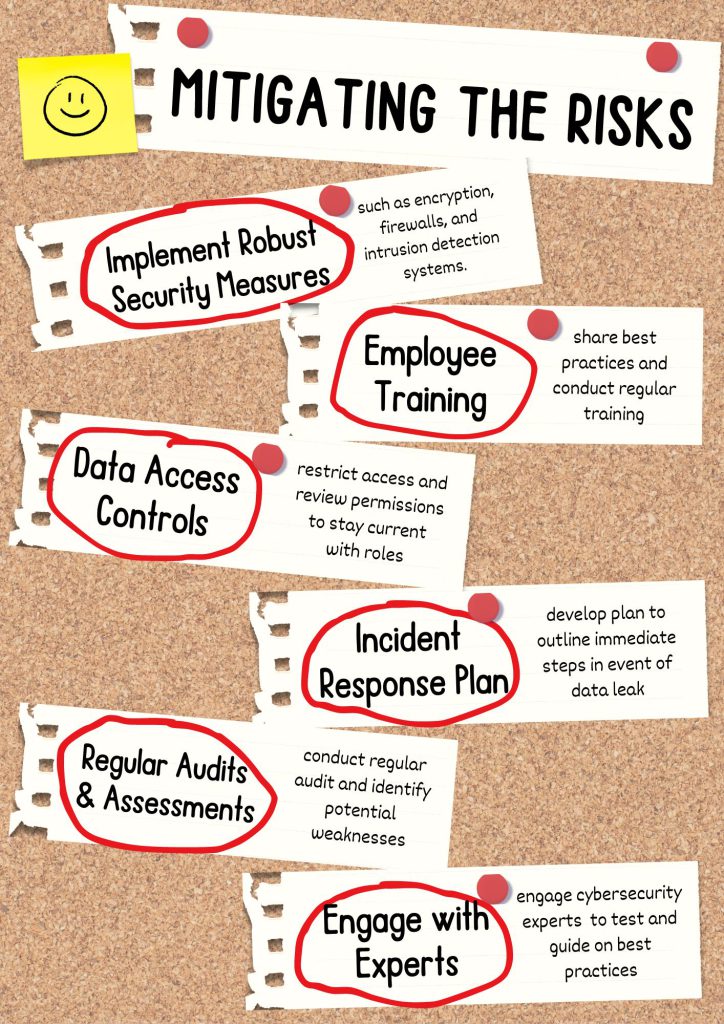In today’s digital age, data is one of the company’s most valuable assets. Whether it’s customer information, financial records, intellectual property, or operational data, the integrity and confidentiality of this information are paramount to maintaining a company’s competitive edge and customer trust. However, with the increasing sophistication of cyber threats, the risk of data leaks is an ever-present concern. For companies in Singapore, a data leak can have severe consequences, ranging from financial losses to reputational damage, and even legal penalties. This article explores the multifaceted impact of a data leak on Singaporean businesses and outlines measures to mitigate these risks.
Financial Repercussions
A data leak can have immediate and long-term financial consequences for a company. Direct costs include the expenses associated with responding to the breach, such as forensic investigations, legal fees, notification of affected individuals, and potential fines imposed by regulators. For instance, under Singapore’s Personal Data Protection Act (PDPA), organisations can be fined up to SGD 1 million for failing to protect personal data.
Beyond these direct costs, companies may face lawsuits from affected parties, resulting in significant compensation payouts. Additionally, losing proprietary information or intellectual property can erode a company’s competitive advantage, leading to decreased market share and reduced profitability over time.
Reputational Damage
In Singapore’s highly competitive business environment, reputation is everything. A data leak can severely damage a company’s reputation, leading to a loss of customer trust. In a country where digital services and e-commerce are booming, consumers are particularly sensitive to how their data is handled. A breach of this trust can lead to customer attrition, as individuals and businesses seek out competitors with stronger security measures.
Moreover, negative publicity can amplify the impact of a data leak. Media coverage of a breach can tarnish a company’s brand image, making it difficult to attract new customers and business partners. The long-term damage to a company’s reputation can far exceed the immediate financial costs, affecting growth prospects for years to come.
Legal and Regulatory Consequences
Singapore’s legal and regulatory framework for data protection is stringent, and companies are required to comply with the PDPA. In the event of a data leak, companies may be subject to investigations by the Personal Data Protection Commission (PDPC), which could result in fines, directives to improve data protection measures, and other regulatory actions.
Beyond financial penalties, non-compliance with data protection regulations can lead to operational disruptions. For example, the PDPC may require a company to suspend certain business activities until adequate data protection measures are in place. This can result in lost revenue and further harm to the company’s reputation.
Operational Disruption
A data leak can disrupt a company’s operations in several ways. The immediate aftermath of a breach often requires diverting resources to manage the incident, such as IT teams working overtime to secure systems and legal teams handling regulatory compliance. This can slow down or halt regular business operations, affecting productivity and service delivery.
Furthermore, a data leak can lead to the loss of critical data, impairing a company’s ability to conduct business as usual. For example, if customer data is compromised, a company may face challenges in fulfilling orders, processing transactions, or managing customer relationships. The resulting operational inefficiencies can lead to further financial losses and customer dissatisfaction.
Strategic Implications
The strategic impact of a data leak can be profound. In a worst-case scenario, a significant breach could force a company to reevaluate its business model or even lead to a complete shutdown. For example, a startup that relies heavily on data-driven services may find it difficult to recover from a breach if customers lose confidence in the security of their data.
In addition, the long-term impact on investor confidence can affect a company’s ability to raise capital. Investors are increasingly prioritising cybersecurity as a key consideration in their investment decisions. A company with a history of data breaches may struggle to attract funding, limiting its growth potential and ability to innovate.
Mitigating the Risks
Given the severe consequences of a data leak, Singaporean companies must prioritise data protection as a core business function. Here are some key measures to mitigate the risks:
1. Implement Robust Security Measures: Invest in advanced cybersecurity technologies, such as encryption, firewalls, and intrusion detection systems, to protect sensitive data. Regularly update and patch systems to address vulnerabilities.
2. Employee Training: Educate employees on data protection best practices and the importance of safeguarding sensitive information. Regular training sessions can help prevent accidental data leaks caused by human error.
3. Data Access Controls: Restrict access to sensitive data to only those employees who need it to perform their duties. Implement role-based access controls and regularly review permissions to ensure they are up-to-date.
4. Incident Response Plan: Develop a comprehensive incident response plan that outlines the steps to take in the event of a data leak. This should include communication strategies, legal and regulatory compliance procedures, and steps to mitigate the damage.
5. Regular Audits and Assessments: Conduct regular audits and vulnerability assessments to identify potential weaknesses in your data protection strategies. Use the findings to continuously improve your security measures.
6. Engage with Experts: Consider engaging cybersecurity experts to conduct penetration testing and provide guidance on best practices. External consultants can offer an objective assessment of your company’s security posture.

Mitigating the risks of data leaks in your company
Conclusion
A data leak can have far-reaching consequences for a Singaporean company, affecting its financial stability, reputation, legal standing, and operational efficiency. In an increasingly digital world, where data is a critical asset, companies must be proactive in implementing robust data protection measures. By doing so, they can safeguard their business from the devastating impact of a data leak and build trust with customers and stakeholders, ensuring long-term success in the marketplace. If you need to get started, chat with us today for a non-obligatory discussion.

